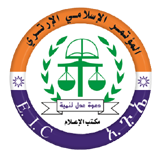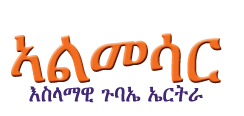View the Amnesty International Report 2017/18 for Eritrea
Eritrea 2017/2018
Thousands continued to flee Eritrea while the authorities severely restricted the right to leave the country. Indefinite mandatory national service continued to be imposed. Restrictions on the rights to freedom of expression and of religion remained. Arbitrary detention without charge or trial continued to be the norm for thousands of prisoners of conscience. Thousands were denied the right to an adequate standard of living.
Background
Skirmishes broke out between the Eritrean and Ethiopian military periodically. Military hostilities with Djibouti escalated over ownership of the disputed territory of Ras Doumeira.
Refugees’ and migrants’ rights
Thousands of Eritreans continued to flee the country. They faced serious human rights abuses while in transit and in destination countries. Sudan remained a key transit for Eritrean refugees. In one case in August, Sudanese courts deported 104 refugees to Eritrea where they were at risk of serious human rights violations. In a context where little is known about the fate of those deported across the border with Sudan, there were reports that 30 of them were deported from Kassala city, eastern Sudan, after being charged with illegal entry. Eritreans also risked arbitrary detention, abduction, sexual abuse and ill-treatment on their way to Europe.
Attempts to address the causes of migration from Eritrea continued at an international level. Following the High Level Dialogues on migration under the EU-Horn of Africa Migration Route Initiative (Khartoum Process), which involves the EU and African states and aims to address migration flows, the European Commission apportioned over EUR13 million for Eritrea in order to support employment opportunities and skills development in the country as a means of reducing migration. The EU channelled EUR100 million to Sudan through the European Union Emergency Trust Fund for Africa for use in addressing the root causes of migration and displacement in the region.
Freedom of movement
The imposition of indefinite military national service, along with the general human rights situation, created severe difficulties for many Eritreans. The right of people to leave the country was severely restricted. The authorities continued to prohibit those aged between five and 50 from travelling abroad, and anyone attempting to leave was subject to arbitrary detention. People seeking to leave to avoid indefinite national service and other human rights violations, or for family reunion with relatives abroad, had to travel by foot and use unofficial border crossings in order to take flights from other countries. If caught by the military, they were detained without charge until they paid exorbitant fines. The amount payable depended on factors such as the commanding officer making the arrest and the time of the year. People caught during national holidays to commemorate independence were subject to higher fines. The amount was greater for those attempting to cross the border with Ethiopia. A “shoot-to-kill” policy remained in place for anyone evading capture and attempting to cross the border into Ethiopia. Children close to conscription age caught trying to leave were sent to Sawa National Service training camp.
Forced labour and slavery
The mandatory national service continued to be extended indefinitely despite repeated calls from the international community on the government to limit conscription to 18 months. Significant numbers of conscripts remained in open-ended conscription, some for as long as 20 years. Despite a minimum legal conscription age of 18, children continued to be subjected to military training under the requirement that they undergo grade 12 of secondary school at Sawa National Service training camp, where they faced harsh living conditions, military-style discipline and weapons training. Women, in particular, faced harsh treatment in the camp including sexual enslavement, torture and other sexual abuse.
Men of up to 67 years of age were conscripted into the “People’s Army”, where they were given a weapon and assigned duties under threat of punitive repercussions, such as detention, fines or hard labour.
Arbitrary arrests and detentions
Arbitrary detention and enforced disappearances continued, for which security forces were not held accountable. Thousands of prisoners of conscience and political prisoners, including former politicians, journalists and practitioners of unauthorized religions, continued to be detained without charge or trial and lacked access to lawyers or family members. Many had been detained for well over a decade.
Freedom of religion and belief
Bans on religious faiths, other than Islam, Orthodox Christianity, Protestant Lutheranism and Catholicism, remained in place. Many Evangelical Christians practised their religion in secret to avoid imprisonment.
Patriarch Antonios, head of the Eritrean Orthodox Church, was reported to have been seen attending mass in the capital, Asmara, in July. He had last been seen in public 10 years earlier just before he was sentenced to house arrest for objecting to government interference in church affairs.
Right to an adequate standard of living
UNICEF said that malnutrition rates had increased over the past few years in four out of six regions of Eritrea, and cited research which projected that 22,700 children under five would be affected by severe acute malnutrition during the year. It also noted national data indicating that half of all children had stunted growth. In her June report, the UN Special Rapporteur on the situation of human rights in Eritrea cited UNICEF’s report. She further highlighted accounts from Eritreans living abroad describing their relatives at home as “struggling to meet their basic needs”. Many of them could not afford “adequate and sufficient basic supplies” and were dealing with “acute water shortages, especially in Asmara”. Reports suggested that more and more people were leaving “drought-affected regions in search of better living conditions.” She noted that the government’s draconian regulations that limited cash withdrawals from individuals’ bank accounts prevented people from buying adequate food and other basic items.
https://www.amnesty.org/en/countries/africa/eritrea/report-eritrea/




